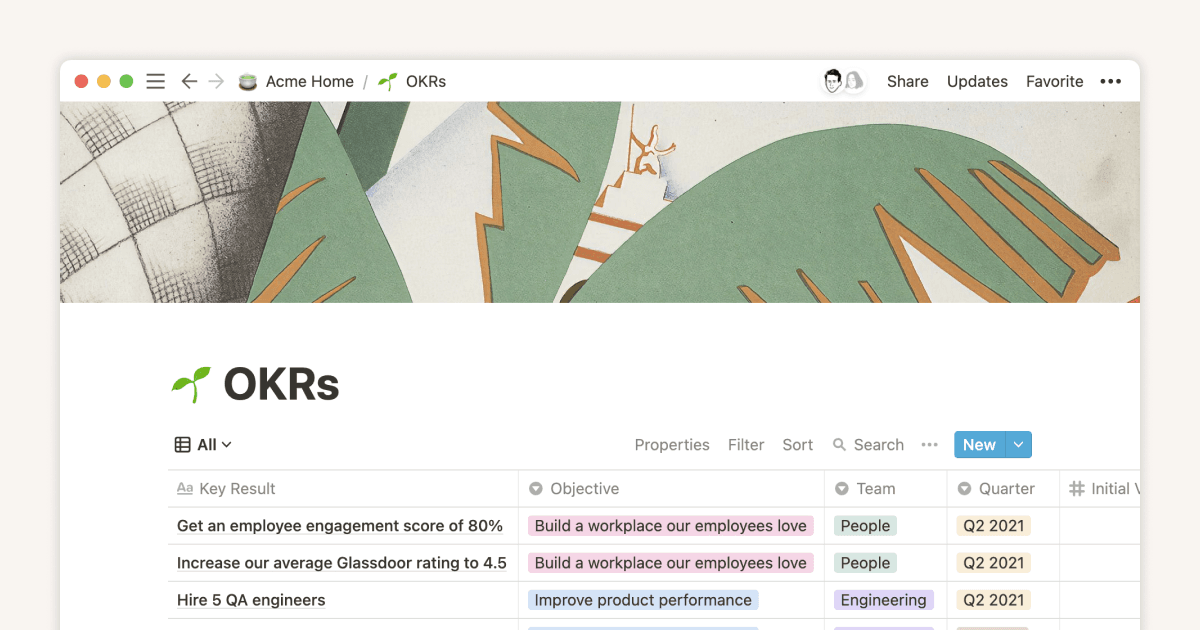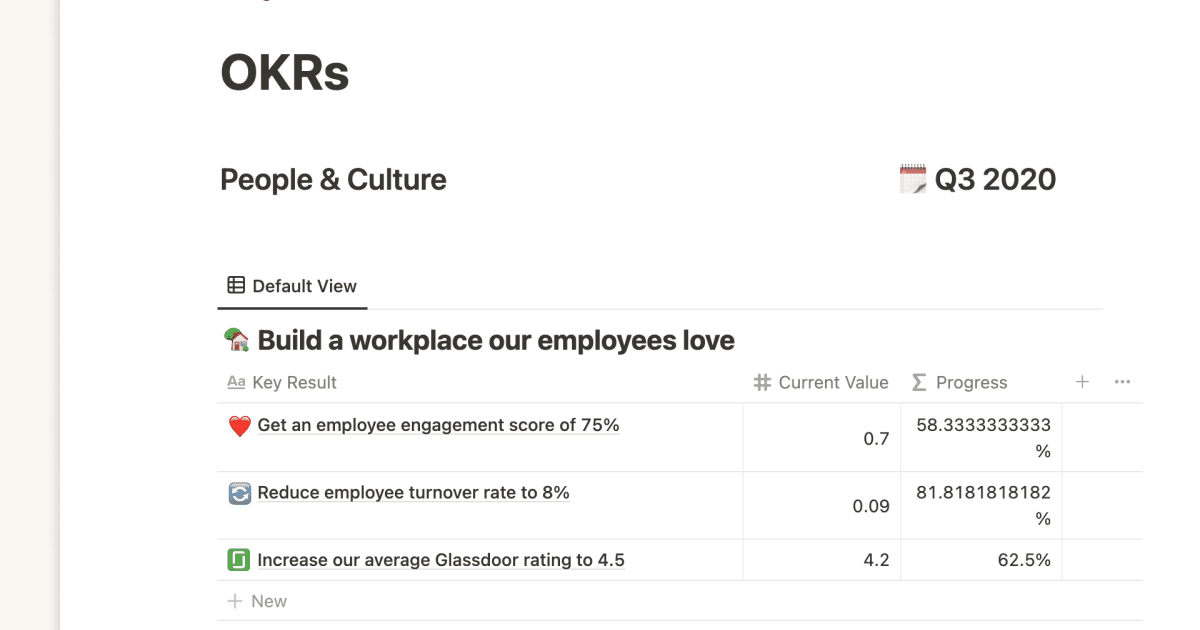Meeting Notes: Scientifically Proven OKR Strategy

Über diese Vorlage
Page 1: Meeting Overview (Objectives & Key Results - OKR Setup)
Description: This page is the starting point for organizing your meeting with clear objectives and key results (OKRs). It includes a table that tracks the objectives, associated key results, responsible teams or individuals, and deadlines for each OKR.
Table Structure:
1. Objective: What is the high-level goal?
2. Key Results: Measurable outcomes linked to the objective.
3. Owner: Who is responsible for this objective?
4. Deadline: When should the objective be achieved?
5. Status: Track if the objective is in progress or completed.
Purpose: To ensure the meeting aligns with well-defined OKRs, giving clarity on what success looks like for each key initiative.
Page 2: Meeting Action Items (Agile Sprint Execution)
Description: This page tracks all the action items decided during the meeting, using Agile principles. The table will help identify tasks, assign responsibilities, set deadlines, and track progress.
Table Structure:
1. Action Item: The specific task to be completed.
2. Assigned To: Who is responsible for this task?
3. Priority: Rank tasks based on importance (High, Medium, Low).
4. Due Date: The deadline for the action item.
5. Progress: Track the status of each task (To-Do, In Progress, Done).
Purpose: To ensure accountability and track progress of all action items assigned during the meeting.
Page 3: Meeting Outcomes & Insights (Data-Driven Decision Making)
Description: This page is for documenting the outcomes and insights generated from the meeting. The table records decisions made, key insights, follow-up actions, and any metrics discussed.
Table Structure:
1. Decision/Insight: Summary of key outcomes or learnings from the meeting.
2. Follow-up Action: Any additional actions required post-meeting.
3. Responsible Person: Who will handle the follow-up?
4. Metrics: Relevant data or metrics discussed.
5. Deadline for Follow-up: Timeline for any further actions.
Purpose: To ensure all key decisions and insights from the meeting are documented and there is a clear plan for follow-up actions.












